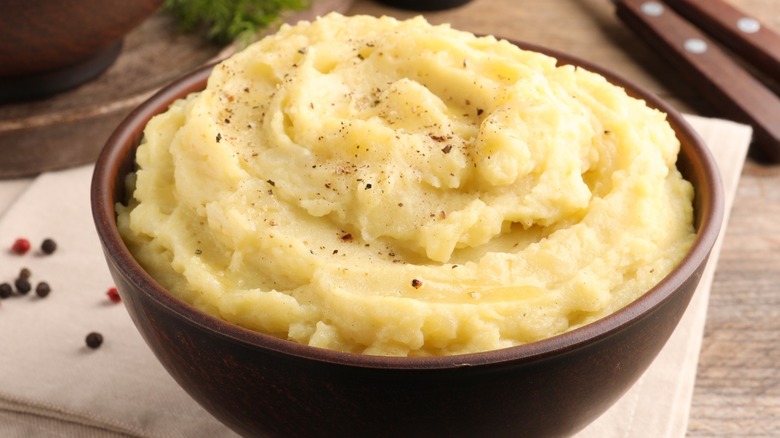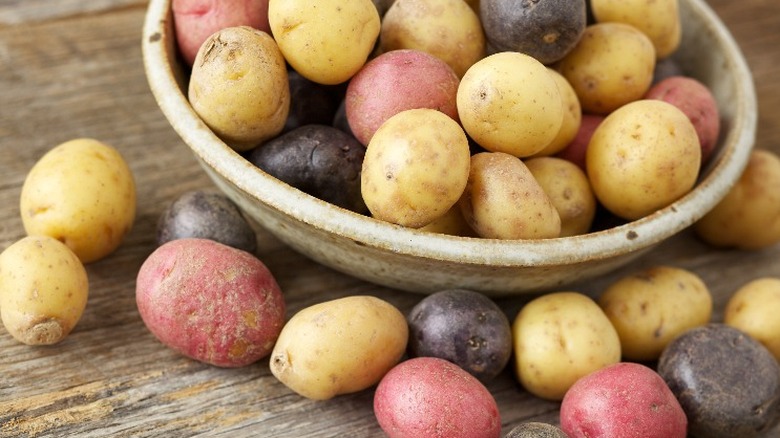The Mistake That's Making Your Mashed Potatoes Stiff (And What To Do Instead)
Mashed potatoes are one of those beloved foods that live or die by their consistency. You want to strike the perfect balance between mashed potatoes that are creamy and smooth while simultaneously light and fluffy. What you definitely want to avoid is potatoes that are stiff or gummy, which happens when home chefs make the mistake of overmixing or overwhipping.
Here's the deal: Overmixing mashed potatoes can make them sort of tacky because of the excessive breakdown of starch molecules. Potatoes inherently contain starch granules, which swell and absorb water when heated during the cooking process. When mashed, these granules release molecules of starch, which then gelatinize and create that coveted creamy texture.
But when mashed potatoes are overmixed, the starch molecules continue to break down over and over. This continuous breakdown of starch can lead to that unpleasant dense or glue-like texture. The starch molecules basically become overly gelatinized and can muck up your whole dish.
What to do instead
Luckily, there's an easy fix for this common mistake and all you need is a potato ricer. This tool, which has been around for more than a century, works by pushing pieces of soft, cooked potato through a grate of small holes, resulting in fine, rice-like grains of potato. The riced potatoes can then be mixed with butter, milk, or cream to create a smooth and velvety consistency.
The upside of using a potato ricer is that it ensures that the potatoes are evenly and thoroughly mashed into small strands. Unlike traditional mashing methods, like using a fork or a potato masher, the potato ricer produces a consistent result that doesn't require much additional mixing (and you can rest assured there will be no lumps). The small perforations in the ricer break down the potatoes into tiny particles, which helps incorporate air. The end result? Silky smooth mashed potatoes that are light and airy.
Other tips for the perfect homemade mashed potatoes
Besides the potato ricer tip, there are a few other secrets to making your homemade mashed potatoes taste better. The first, and perhaps most important, thing is to start with the right variety of potato. Using a starchier potato, such as russet or Yukon Gold, is best for making mashed potatoes because these types have a higher starch content compared to waxy potatoes like red potatoes. They are also low in moisture which helps them better absorb mix-ins like milk, sour cream, or butter.
Once you have the right potatoes in hand, make a super simple swap that will make your mashed potatoes taste like heaven: Boil the potatoes in half-and-half instead of plain water. Letting the potatoes cook in a pot of half-and-half infuses them with a subtle richness right from the start, which helps the potatoes develop a creamy texture when mashed.


